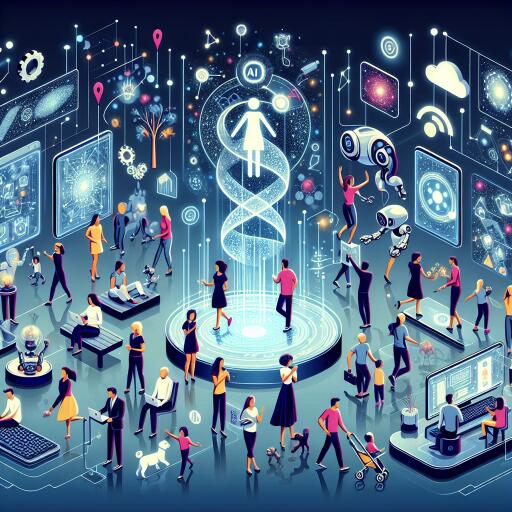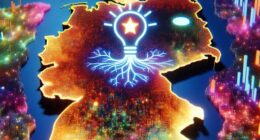The Dawn of a New Era: Reevaluating Human Creativity Amidst AI’s Ascendancy
As artificial intelligence (AI) continues to advance at an unprecedented rate, the lines between human-made and machine-generated creations are becoming increasingly indistinct. This evolution is not only a technological milestone but also a complex challenge that confronts the engrained perceptions of creativity, authorship, and invention. Regulatory authorities, facing the daunting task of navigating these uncharted waters, strive to articulate the irreplaceable importance of human involvement. Their efforts highlight a crucial debate centered on the legal and existential questions surrounding the interplay between human ingenuity and artificial intellect.
Artificial intelligence has now reached capabilities that were once the realm of science fiction, achieving feats from autonomously navigating vehicles to accurately identifying medical conditions. Its influence extends deeply into the realm of creativity; AI can craft pieces of art, compose music, and write narratives that closely mimic the essence of human expression. These strides in technology have sparked a profound reflection on what it means to create and innovate.
The digital age has witnessed robots stepping beyond mere tools of automation, undertaking roles that demand not only a physical presence but also cognitive engagement. This shift is emblematic of a broader transformation, where machines are not only replicators of tasks but also entities capable of originality and decision-making. Such advancements cast a spotlight on the fundamental differences—and potential overlaps—between human and machine outputs.
The key regulatory entities, such as the U.S. Patent and Trademark Office (USPTO) and the U.S. Copyright Office, find themselves at the epicenter of a pivotal discourse. Their recent methodologies aim to clarify the distinction, emphasizing the enduring significance of human touch in a domain increasingly influenced by artificial capabilities. This boundary-drawing exercise reveals the complexities of integrating AI into the world of creation and innovation, demanding a nuanced understanding of what constitutes genuine contribution and originality.
As AI continues to evolve, so too does the framework within which we evaluate creativity and authorship. The conversation extends far beyond legal parameters, touching on philosophical and ethical considerations that define human experience. It poses fundamental questions about the value we ascribe to human and machine labor and challenges us to reconsider the essence of creativity in an age where artificial intellect rivals that of its creators.
This era of technological marvel brings with it an opportunity for introspection about the role of human creativity in a world where machines can emulate—and sometimes surpass—the expressive capacities of humans. As AI deepens its roots in the creative process, affirming the unique value of human contribution remains a paramount concern. Regulatory and philosophical discourse around this issue serves not only to navigate the immediate legal intricacies but also to shape a future where the partnership between human ingenuity and artificial intelligence unfolds to its fullest, most harmonious potential.










